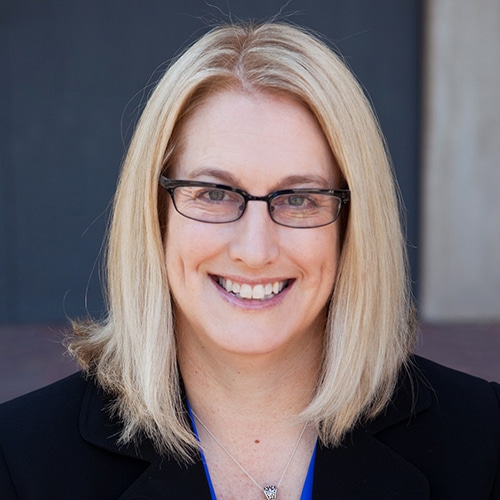In Attorney at Work’s Q&A series, Mary Juetten checks in with Legal Shield lawyers and legal tech entrepreneurs working to improve access to justice. This time, Benjamin Farrow of The Anderson Law Firm discusses the importance of listening, technology’s emerging role and his advice on taking small, incremental steps to support access to justice: “You don’t have to reinvent the entire justice system, you just have to ask, ‘How can I make this work better today?'”
Getting to Know Benjamin Farrow
I had the pleasure of meeting Benjamin Farrow at the first Elevate by LegalShield in 2017. I was immediately struck by his enthusiasm for the law. Benjamin was born in Texas and raised in Idaho, Colorado and Louisiana. He graduated from Tulane University in 1988 and Louisiana State University Law School in 1992. He started practicing as an admiralty lawyer in New Orleans then relocated to Alabama in 1999 and passed the Alabama state bar exam in 2000. Benjamin subsequently joined The Anderson Law Firm and was made a shareholder in 2006. In 2016, he was admitted to the Mississippi bar and the firm opened its Jackson, Mississippi, office. He regularly travels between Montgomery and Jackson and oversees the work of both offices. The challenge of practicing in three states and keeping clients happy is something he says he enjoys every day, some more than others. He enjoys zymurgy, probability and skiing during his time off.
Quick Answers
- When I was a kid I wanted to be: A lawyer. Seriously, from third grade.
- My greatest accomplishment: Hasn’t happened yet.
- Never forget to: Be kind and treat people with respect.
- I work best: With a team.
- My best ideas come from: Listening to others.
- The toughest lesson I’ve learned is: The best lessons come from a loss.
- My pick-me-up is: A few drinks with good friends.
- My attitude toward life is: Time slips by quickly; do what you can while you can.
- Best advice I’ve ever received is: All success is fleeting.
Productivity Habits
Describe your morning routine.
I run my reports and review from the day before and set my schedule for the day by prioritizing tasks but remain flexible for the questions to come from my team.
Where do you like to work?
In an office with an open door and a chance to have an impact.
What’s your email strategy?
Ignore the “ding.” Check it at certain times and limit your responses.
What’s your best productivity habit?
Take the hardest task first thing in the morning; when it is done the rest of the day is a lot easier.
What’s your favorite productivity tool?
Hate to say it, but my smartphone.
What do you let slide?
I try not to attribute ill intent to a simple mistake nor perceived transgression.
What’s your nightly routine?
After dinner, I check email one last time for any West Coast emails, do a crossword puzzle (pen and paper, not online), chat with friends, check Reddit for the latest cultural moment [and] then look at the day’s news. I avoid TV unless there is something of particular interest.
Deeper Dive into The Anderson Law Firm
How do you define access to justice?
An even playing field for all litigants.
Tell us about your connection to access to justice.
Watching pro se litigants lose in court, not because they did not have a valid case or defense, but simply because they did not have the tools nor the understanding of how to present their side of the story within the constraints necessary for a fair trial.
How are you solving access to justice for your clients?
One of the best things about having LegalShield as a client is that we get to help people, the vast majority of whom would never have called an attorney seeking advice. The advice can be as simple as “yes, your landlord can do that” or “no, your landlord can not do that.”
Knowledge is power, and if you don’t know your rights you don‘t have any rights.
What role does technology play in access to justice?
I think the role of technology is still emerging. There are some tasks that technology can make easier. Unfortunately, I don’t believe an app currently exists that can adequately explain how to prove, through testimony and documentation, the elements of a case in a way that satisfies the court’s rules of procedure and evidence.
Do you see the “digital divide” (access to technology) as an issue?
Every new technology starts with a divide, but a bridge always gets built. The bridge may not be built as fast as we want, but the bridge always gets done.
Do you see client knowledge of legal issues (or the education gap) as an issue?
People usually only think they need lawyers when they have a problem. A lot of times, however, a simple consultation with a lawyer can avoid a lot of headaches later. If your foundation is solid, your house will withstand more.
What have you had to change based on feedback? Or what have you learned the hard way?
For a profession that people believe gets paid by the word, you actually get paid to listen. A great lawyer knows how to listen to his clients, the witnesses, to his opponent, to his opponent’s attorney and to the judge. You learn more with open ears than you do with an open mouth.
Where does inspiration come from?
You have to wake up every day and ask how you can make your firm better. Some days it is in a big way; some days not so big. The key is, however, that you have to start every day wondering how you can make a difference and not worry about the size of the impact.
What is your best tip for supporting access to justice?
Little steps can have a big impact. The Great Pyramid of Giza was built one stone at a time. You don’t have to reinvent the entire justice system, you just have to ask, “How can I make this work better today?”
Where is the A2J movement going?
To paraphrase Mr. McGuire to Benjamin Braddock in “The Graduate,” I want to say just one word to you. Just one word. Technology. Not all legal work needs to be done by lawyers. Some can be done by technology, some by paraprofessionals and some by lawyers. As a professional body, lawyers, law firms and the courts, all need to do a better job of identifying things that can be done most efficiently by a lawyer or otherwise. You don’t always need my expertise and I should make it easier for clients to find the cheapest, easiest solution to their problem.
Where are you going?
I am going into the future with my mind and eyes wide open. I’m excited about the unknown and the challenges to come.
Find more information about The Anderson Law Firm here and about Benjamin Farrow here.
Read additional A2J interviews by Mary Juetten here.






















